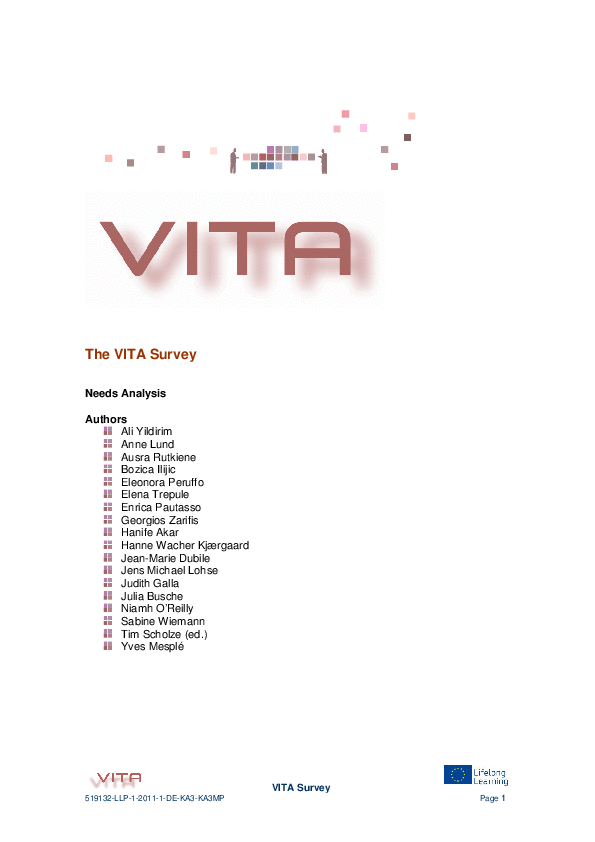- WP1 Stocktaking
- WP2 Validation system
- WP3 ICT Development
- WP4 Piloting
- WP5 Certification
- WP6 Training
- WP7 Evaluation
- WP8 Product Finalisation
- WP9 Dissemination
- WP10 Valorisation
 This project (519132-LLP-1-2011-1-DE-KA3-KA3MP) has been funded with support from the European Commission. This communication reflects the views only of the author, and the Commission cannot be held responsible for any use which may be made of the information contained therein.
This project (519132-LLP-1-2011-1-DE-KA3-KA3MP) has been funded with support from the European Commission. This communication reflects the views only of the author, and the Commission cannot be held responsible for any use which may be made of the information contained therein.
Evaluation
The evaluation was consisting of two parts: external and internal (process-) evaluation: The external evaluation focused on the assessment and evidencing of achieved project results in relation to concept, materials and course, whereas the internal evaluation has been focusing on internal processes within the VITA partnership, e.g. work flow, cooperation and communication.
A programme (or impact) evaluation assessed the achieved results, approaches and instruments developed in VITA against feasibility and usability aspects of different educational sectors in order.
The evaluation approach was developed in the first project phase and presented to all partners. The partner who is responsible for the internal evaluation has assessed progression, involvement of partners in the project activities, transnational meetings and level of contentment regularly and fed back the results to the coordinator and partners.
The main internal evaluation procedures have taken part during the transnational meetings and in monthly internet conferences that serve to present intermediate results via the applied online conference system.
The formative process evaluation has been introduced as an early warning system to evaluate the process of collaboration and the degree of consent among the partnership during the project lifetime.
An evaluation report was developed as internal document.



